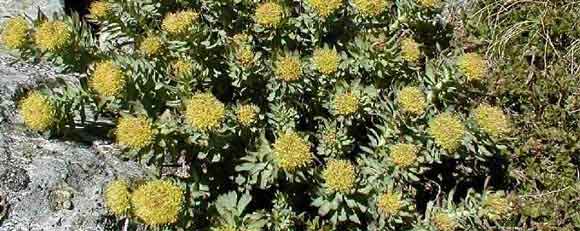Researchers at the University of Rome published the results of a recent study that studied the effects of Rhodiola Rosea in 14 trained male athletes. Specifically, their study sought to determine if supplementation with this adaptogenic plant could improve athletic performance.
What Is Roseroot?
Rhodiola Rosea, a plant known by other names including Roseroot, Golden root, and Aaron’s rod, grows in the cold regions of the world such as the arctic and Rocky Mountains. Some purported health benefits of supplementation with this plant include an improvement in mood and concentration as well as reduced mental fatigue. It has also been used in traditional Chinese medicine.
Rhodiola Rosea Research:
Back to this recent study, the authors did find that one-month supplementation with Rhodiola Rosea reduced lactate levels and parameters of skeletal muscle damage after an exhaustive exercise session. It did not improve VO2 max or max HR in test subjects. This conflicts with the results of a previous Belgian study (De Bock et al, 2004) which found modest, but statistically significant improvements in VO2 max in subjects who supplemented with Roseroot.
What Dose Was Used?
]In the Belgian study, subjects consumed 200 mg of Rhodiola rosea extract one hour prior to exercise (R, 200-mg Rhodiola roseaa extract containing 3% rosavin + 1% salidroside plus 500 mg starch). Improvement in VO2 max ranged from just under 4% to 6% in test subjects.
To clarify, a recent review in the literature (Blomkvist et al, 2009) essentially concluded that there are a number of methodological flaws in studies on this plant. As such, they note the need for further investigation to confirm previous findings.
With respect to safety, two recent studies on this plant extract–one study for use in depression and the other for treating cognitive deficiencies noted that it was well tolerated at doses under 680 mg/day (Fintelmann et al, 2007; Darbinyan et al, 2007).
The bottom line is that like other adaptogens, there are inconsistencies with respect to recent clinical trials on this plant extract. However, it also seems to be generally well-tolerated based on the currently available evidence. It’s possible that it may help to improve endurance in athletes when used appropriately.
References:
- Parisi A, Tranchita E, Duranti G, Ciminelli E, Quaranta F, Ceci R, Cerulli C, Borrione P, Sabatini S. Effects of chronic Rhodiola Rosea supplementation on sport performance and antioxidant capacity in trained male: preliminary results. J Sports Med Phys Fitness. 2010 Mar;50(1):57-63.
- De Bock K, Eijnde BO, Ramaekers M, Hespel P. Acute Rhodiola Rosea intake can improve endurance exercise performance. Int J Sport Nutr Exerc Metab. 2004 Jun;14(3):298-307.
- Blomkvist J, Taube A, Larhammar D. Perspective on Roseroot (Rhodiola Rosea) studies. Planta Med.2009 Sep;75(11):1187-90. Epub 2009 May 25.
- Fintelmann V, Gruenwald J. Efficacy and tolerability of a Rhodiola Rosea extract in adults with physical and cognitive deficiencies. Adv Ther. 2007 Jul-Aug;24(4):929-39.
- Darbinyan V, Aslanyan G, Amroyan E, Gabrielyan E, Malmström C, Panossian A. Clinical trial of Rhodiola Rosea L. extract SHR-5 in the treatment of mild to moderate depression. Nord J Psychiatry. 2007;61(5):343-8.






